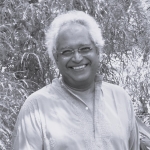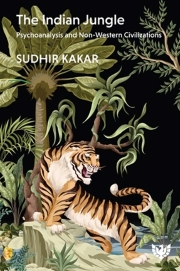
Sudhir Kakar is an Indian psychoanalyst and writer. He has been a lecturer and visiting professor at Harvard University, visiting professor at the universities of Chicago, McGill, Melbourne, Hawaii, and Vienna, fellow at the Institutes of Advanced Study, Princeton, Berlin, and Cologne, and is on the board of the Freud Archives.
His many honors include the Kardiner Award of Columbia University, the Boyer Prize for Psychological Anthropology of the American Anthropological Association, the Tagore-Merck Award, the Lotte Köhler Prize for Psychoanalytic Developmental, Cultural and Social Psychology, the Distinguished Service Award of the Indo-American Psychiatric Association, India’s Bhabha, Nehru, and ICSSR National Fellowships, Germany’s Goethe Medal, McArthur Research Fellowship, and the Order of Merit of the Federal Republic of Germany, the country’s highest civilian honor. As “the psychoanalyst of civilizations,” the French weekly Le Nouvel Observateur listed Kakar in 2005 as one of the world’s twenty-five major thinkers.
Sudhir’s latest book The Indian Jungle: Psychoanalysis and Non-Western Civilizations is an invaluable contribution from a major world thinker to the creation of a global psychoanalysis, which informs and modifies psychoanalytic understanding of fundamental questions of human existence.
The mental representations of culture, our cultural imagination, have been a relatively unexplored territory in psychoanalytic discourse. Disseminated through myths and legends, proverbs and metaphors, iconic artworks, the stories its members tell each other, enacted in rituals, conveyed through tales told to children, given a modern veneer in movies, cultural imagination is equally glimpsed in admonitions of parents, in the future vistas they hold out to their children, indeed even in the way its children are touched and fed and carried about.
For more than a century, the cultural imagination in which psychoanalysis has been embedded has been Western. Although the cultures  of psychoanalysis in South America, France, Italy, England, United States, and so on have distinct and important differences, they all share a strong family resemblance with their common origins in the Hellenic and Judeo-Christian cultures in which psychoanalysis too has its roots. These origins distinguish them clearly from the cultural imaginations of Indian, Chinese, Japanese, Iranian and other non-Western civilisations.
of psychoanalysis in South America, France, Italy, England, United States, and so on have distinct and important differences, they all share a strong family resemblance with their common origins in the Hellenic and Judeo-Christian cultures in which psychoanalysis too has its roots. These origins distinguish them clearly from the cultural imaginations of Indian, Chinese, Japanese, Iranian and other non-Western civilisations.
In the intellectual climate of our times, with the rise of relativism in the human sciences and politically with the advent of decolonization, the cultural and historical transcendence of psychoanalytic thought can no longer be taken for granted. Insights from clinical work embedded in the cultural imaginations of non-Western civilizations, Hindu-India in the case of this book, could help psychoanalysis rethink some of its theories of the human psyche, extending these to cover a fuller range of human experience. With illustrations from case studies and especially the rich and vibrantly alive Indian mythology, The Indian Jungle seeks to modify the current psychoanalytic understanding of fundamental questions of human existence, the human mind, and the quest for psychic truth.
Sudhir Kakar
Pre-order your copy of The Indian Jungle: Psychoanalysis and Non-Western Civilizationsnow! Due to be published May 2024. View other books by Sudhir Kakar here.

